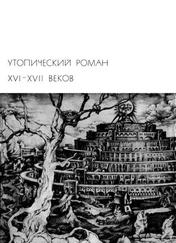Томас Мор - Utopia
Здесь есть возможность читать онлайн «Томас Мор - Utopia» — ознакомительный отрывок электронной книги совершенно бесплатно, а после прочтения отрывка купить полную версию. В некоторых случаях можно слушать аудио, скачать через торрент в формате fb2 и присутствует краткое содержание. Год выпуска: 2014, Издательство: epubBooks Classics, Жанр: Европейская старинная литература, Философия, Политика, на английском языке. Описание произведения, (предисловие) а так же отзывы посетителей доступны на портале библиотеки ЛибКат.
- Название:Utopia
- Автор:
- Издательство:epubBooks Classics
- Жанр:
- Год:2014
- ISBN:нет данных
- Рейтинг книги:4 / 5. Голосов: 1
-
Избранное:Добавить в избранное
- Отзывы:
-
Ваша оценка:
- 80
- 1
- 2
- 3
- 4
- 5
Utopia: краткое содержание, описание и аннотация
Предлагаем к чтению аннотацию, описание, краткое содержание или предисловие (зависит от того, что написал сам автор книги «Utopia»). Если вы не нашли необходимую информацию о книге — напишите в комментариях, мы постараемся отыскать её.
Utopia — читать онлайн ознакомительный отрывок
Ниже представлен текст книги, разбитый по страницам. Система сохранения места последней прочитанной страницы, позволяет с удобством читать онлайн бесплатно книгу «Utopia», без необходимости каждый раз заново искать на чём Вы остановились. Поставьте закладку, и сможете в любой момент перейти на страницу, на которой закончили чтение.
Интервал:
Закладка:
To this I answered, "You have done me a great kindness in this relation; for as everything has been related by you both wisely and pleasantly, so you have made me imagine that I was in my own country and grown young again, by recalling that good Cardinal to my thoughts, in whose family I was bred from my childhood; and though you are, upon other accounts, very dear to me, yet you are the dearer because you honour his memory so much; but, after all this, I cannot change my opinion, for I still think that if you could overcome that aversion which you have to the courts of princes, you might, by the advice which it is in your power to give, do a great deal of good to mankind, and this is the chief design that every good man ought to propose to himself in living; for your friend Plato thinks that nations will be happy when either philosophers become kings or kings become philosophers. It is no wonder if we are so far from that happiness while philosophers will not think it their duty to assist kings with their counsels." "They are not so base–minded," said he, "but that they would willingly do it; many of them have already done it by their books, if those that are in power would but hearken to their good advice. But Plato judged right, that except kings themselves became philosophers, they who from their childhood are corrupted with false notions would never fall in entirely with the counsels of philosophers, and this he himself found to be true in the person of Dionysius.
"Do not you think that if I were about any king, proposing good laws to him, and endeavouring to root out all the cursed seeds of evil that I found in him, I should either be turned out of his court, or, at least, be laughed at for my pains? For instance, what could I signify if I were about the King of France, and were called into his cabinet council, where several wise men, in his hearing, were proposing many expedients; as, by what arts and practices Milan may be kept, and Naples, that has so often slipped out of their hands, recovered; how the Venetians, and after them the rest of Italy, may be subdued; and then how Flanders, Brabant, and all Burgundy, and some other kingdoms which he has swallowed already in his designs, may be added to his empire? One proposes a league with the Venetians, to be kept as long as he finds his account in it, and that he ought to communicate counsels with them, and give them some share of the spoil till his success makes him need or fear them less, and then it will be easily taken out of their hands; another proposes the hiring the Germans and the securing the Switzers by pensions; another proposes the gaining the Emperor by money, which is omnipotent with him; another proposes a peace with the King of Arragon, and, in order to cement it, the yielding up the King of Navarre's pretensions; another thinks that the Prince of Castile is to be wrought on by the hope of an alliance, and that some of his courtiers are to be gained to the French faction by pensions. The hardest point of all is, what to do with England; a treaty of peace is to be set on foot, and, if their alliance is not to be depended on, yet it is to be made as firm as possible, and they are to be called friends, but suspected as enemies: therefore the Scots are to be kept in readiness to be let loose upon England on every occasion; and some banished nobleman is to be supported underhand (for by the League it cannot be done avowedly) who has a pretension to the crown, by which means that suspected prince may be kept in awe. Now when things are in so great a fermentation, and so many gallant men are joining counsels how to carry on the war, if so mean a man as I should stand up and wish them to change all their counsels—to let Italy alone and stay at home, since the kingdom of France was indeed greater than could be well governed by one man; that therefore he ought not to think of adding others to it; and if, after this, I should propose to them the resolutions of the Achorians, a people that lie on the south–east of Utopia, who long ago engaged in war in order to add to the dominions of their prince another kingdom, to which he had some pretensions by an ancient alliance: this they conquered, but found that the trouble of keeping it was equal to that by which it was gained; that the conquered people were always either in rebellion or exposed to foreign invasions, while they were obliged to be incessantly at war, either for or against them, and consequently could never disband their army; that in the meantime they were oppressed with taxes, their money went out of the kingdom, their blood was spilt for the glory of their king without procuring the least advantage to the people, who received not the smallest benefit from it even in time of peace; and that, their manners being corrupted by a long war, robbery and murders everywhere abounded, and their laws fell into contempt; while their king, distracted with the care of two kingdoms, was the less able to apply his mind to the interest of either. When they saw this, and that there would be no end to these evils, they by joint counsels made an humble address to their king, desiring him to choose which of the two kingdoms he had the greatest mind to keep, since he could not hold both; for they were too great a people to be governed by a divided king, since no man would willingly have a groom that should be in common between him and another. Upon which the good prince was forced to quit his new kingdom to one of his friends (who was not long after dethroned), and to be contented with his old one. To this I would add that after all those warlike attempts, the vast confusions, and the consumption both of treasure and of people that must follow them, perhaps upon some misfortune they might be forced to throw up all at last; therefore it seemed much more eligible that the king should improve his ancient kingdom all he could, and make it flourish as much as possible; that he should love his people, and be beloved of them; that he should live among them, govern them gently and let other kingdoms alone, since that which had fallen to his share was big enough, if not too big, for him:—pray, how do you think would such a speech as this be heard?"
"I confess," said I, "I think not very well."
"But what," said he, "if I should sort with another kind of ministers, whose chief contrivances and consultations were by what art the prince's treasures might be increased? where one proposes raising the value of specie when the king's debts are large, and lowering it when his revenues were to come in, that so he might both pay much with a little, and in a little receive a great deal. Another proposes a pretence of a war, that money might be raised in order to carry it on, and that a peace be concluded as soon as that was done; and this with such appearances of religion as might work on the people, and make them impute it to the piety of their prince, and to his tenderness for the lives of his subjects. A third offers some old musty laws that have been antiquated by a long disuse (and which, as they had been forgotten by all the subjects, so they had also been broken by them), and proposes the levying the penalties of these laws, that, as it would bring in a vast treasure, so there might be a very good pretence for it, since it would look like the executing a law and the doing of justice. A fourth proposes the prohibiting of many things under severe penalties, especially such as were against the interest of the people, and then the dispensing with these prohibitions, upon great compositions, to those who might find their advantage in breaking them. This would serve two ends, both of them acceptable to many; for as those whose avarice led them to transgress would be severely fined, so the selling licences dear would look as if a prince were tender of his people, and would not easily, or at low rates, dispense with anything that might be against the public good. Another proposes that the judges must be made sure, that they may declare always in favour of the prerogative; that they must be often sent for to court, that the king may hear them argue those points in which he is concerned; since, how unjust soever any of his pretensions may be, yet still some one or other of them, either out of contradiction to others, or the pride of singularity, or to make their court, would find out some pretence or other to give the king a fair colour to carry the point. For if the judges but differ in opinion, the clearest thing in the world is made by that means disputable, and truth being once brought in question, the king may then take advantage to expound the law for his own profit; while the judges that stand out will be brought over, either through fear or modesty; and they being thus gained, all of them may be sent to the Bench to give sentence boldly as the king would have it; for fair pretences will never be wanting when sentence is to be given in the prince's favour. It will either be said that equity lies of his side, or some words in the law will be found sounding that way, or some forced sense will be put on them; and, when all other things fail, the king's undoubted prerogative will be pretended, as that which is above all law, and to which a religious judge ought to have a special regard. Thus all consent to that maxim of Crassus, that a prince cannot have treasure enough, since he must maintain his armies out of it; that a king, even though he would, can do nothing unjustly; that all property is in him, not excepting the very persons of his subjects; and that no man has any other property but that which the king, out of his goodness, thinks fit to leave him. And they think it is the prince's interest that there be as little of this left as may be, as if it were his advantage that his people should have neither riches nor liberty, since these things make them less easy and willing to submit to a cruel and unjust government. Whereas necessity and poverty blunts them, makes them patient, beats them down, and breaks that height of spirit that might otherwise dispose them to rebel. Now what if, after all these propositions were made, I should rise up and assert that such counsels were both unbecoming a king and mischievous to him; and that not only his honour, but his safety, consisted more in his people's wealth than in his own; if I should show that they choose a king for their own sake, and not for his; that, by his care and endeavours, they may be both easy and safe; and that, therefore, a prince ought to take more care of his people's happiness than of his own, as a shepherd is to take more care of his flock than of himself? It is also certain that they are much mistaken that think the poverty of a nation is a mean of the public safety. Who quarrel more than beggars? who does more earnestly long for a change than he that is uneasy in his present circumstances? and who run to create confusions with so desperate a boldness as those who, having nothing to lose, hope to gain by them? If a king should fall under such contempt or envy that he could not keep his subjects in their duty but by oppression and ill usage, and by rendering them poor and miserable, it were certainly better for him to quit his kingdom than to retain it by such methods as make him, while he keeps the name of authority, lose the majesty due to it. Nor is it so becoming the dignity of a king to reign over beggars as over rich and happy subjects. And therefore Fabricius, a man of a noble and exalted temper, said 'he would rather govern rich men than be rich himself; since for one man to abound in wealth and pleasure when all about him are mourning and groaning, is to be a gaoler and not a king.' He is an unskilful physician that cannot cure one disease without casting his patient into another. So he that can find no other way for correcting the errors of his people but by taking from them the conveniences of life, shows that he knows not what it is to govern a free nation. He himself ought rather to shake off his sloth, or to lay down his pride, for the contempt or hatred that his people have for him takes its rise from the vices in himself. Let him live upon what belongs to him without wronging others, and accommodate his expense to his revenue. Let him punish crimes, and, by his wise conduct, let him endeavour to prevent them, rather than be severe when he has suffered them to be too common. Let him not rashly revive laws that are abrogated by disuse, especially if they have been long forgotten and never wanted. And let him never take any penalty for the breach of them to which a judge would not give way in a private man, but would look on him as a crafty and unjust person for pretending to it. To these things I would add that law among the Macarians—a people that live not far from Utopia—by which their king, on the day on which he began to reign, is tied by an oath, confirmed by solemn sacrifices, never to have at once above a thousand pounds of gold in his treasures, or so much silver as is equal to that in value. This law, they tell us, was made by an excellent king who had more regard to the riches of his country than to his own wealth, and therefore provided against the heaping up of so much treasure as might impoverish the people. He thought that moderate sum might be sufficient for any accident, if either the king had occasion for it against the rebels, or the kingdom against the invasion of an enemy; but that it was not enough to encourage a prince to invade other men's rights—a circumstance that was the chief cause of his making that law. He also thought that it was a good provision for that free circulation of money so necessary for the course of commerce and exchange. And when a king must distribute all those extraordinary accessions that increase treasure beyond the due pitch, it makes him less disposed to oppress his subjects. Such a king as this will be the terror of ill men, and will be beloved by all the good.
Читать дальшеИнтервал:
Закладка:
Похожие книги на «Utopia»
Представляем Вашему вниманию похожие книги на «Utopia» списком для выбора. Мы отобрали схожую по названию и смыслу литературу в надежде предоставить читателям больше вариантов отыскать новые, интересные, ещё непрочитанные произведения.
Обсуждение, отзывы о книге «Utopia» и просто собственные мнения читателей. Оставьте ваши комментарии, напишите, что Вы думаете о произведении, его смысле или главных героях. Укажите что конкретно понравилось, а что нет, и почему Вы так считаете.








